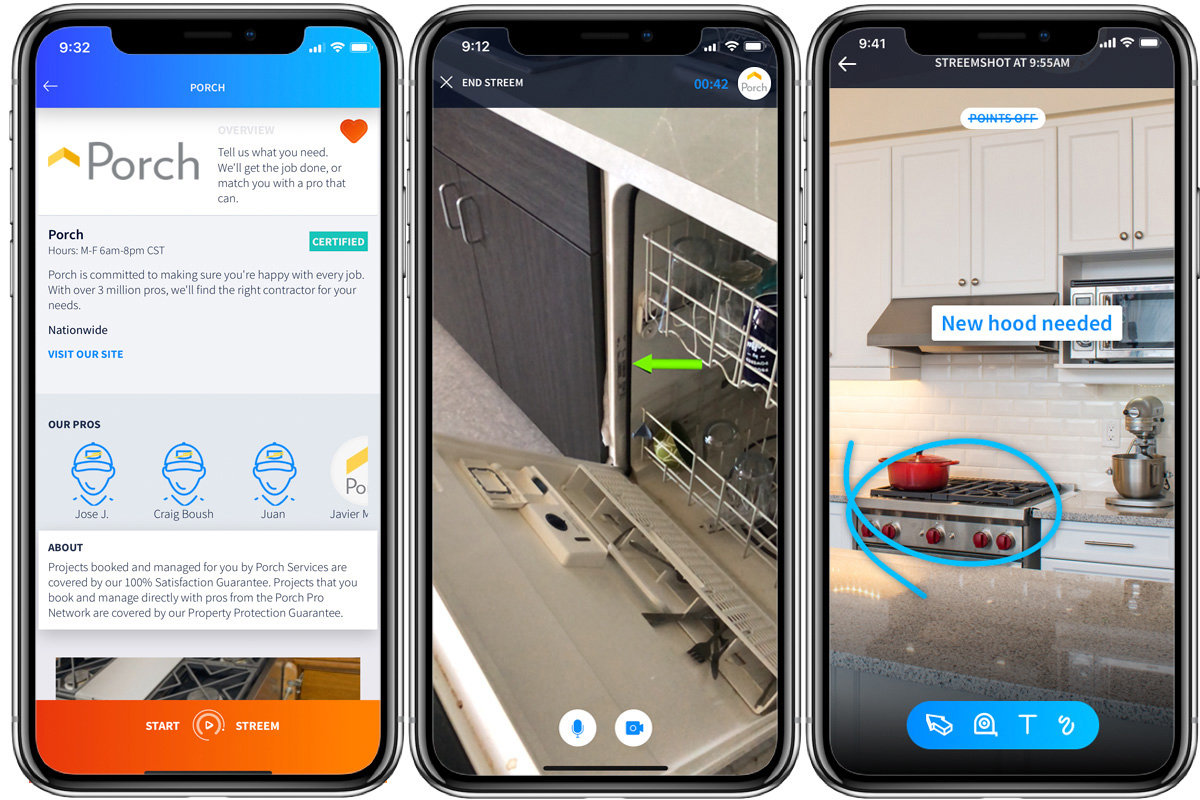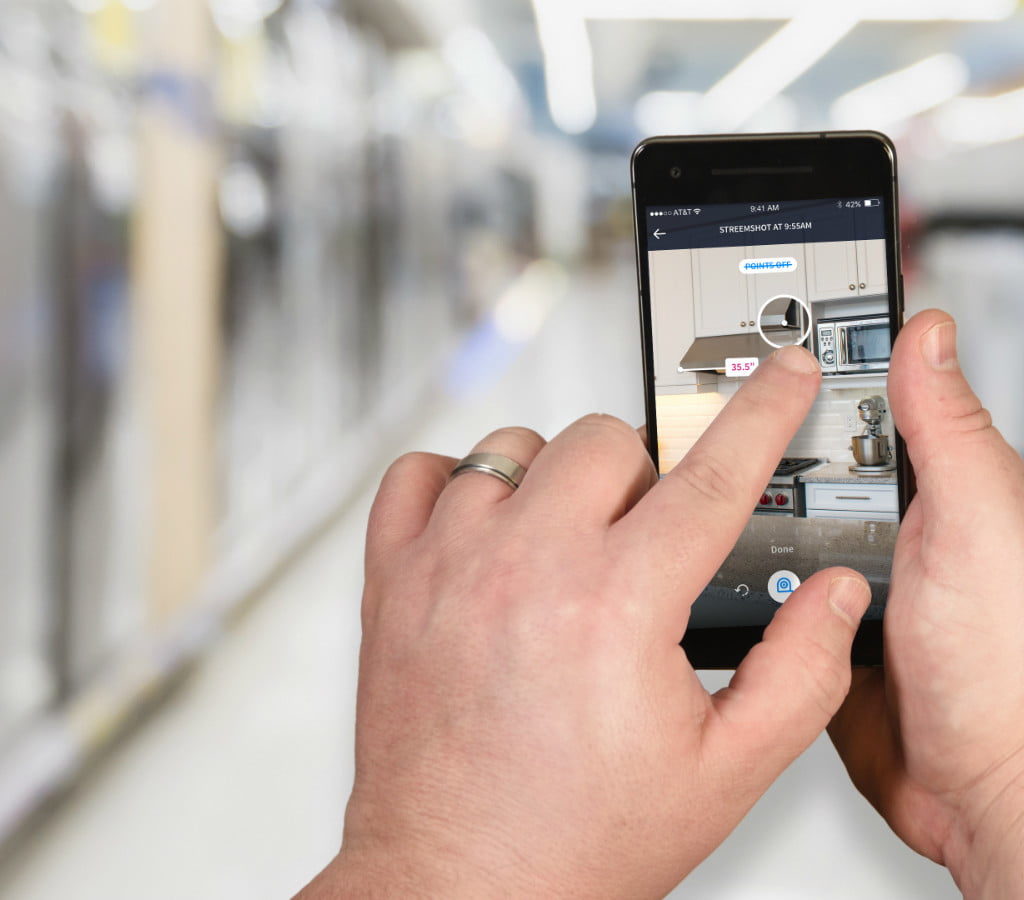Tech Vision is LSA’s series that spotlights emerging tech. Running semi-weekly, it reports on new technologies that LSA analysts track, including strategic implications for local commerce. See the full series here.
Augmented Reality use cases are often divided between enterprise (B2B), and consumer (B2C). But there’s a third category emerging somewhere between the two: B2B2C. In other words, AR is being applied to help consumer-facing businesses better serve their customers.
This is where Streem lives, as we examined recently. It brings the industrial AR concept of remote assistance (a.k.a. “see what I see”) to home services. The way this plays out is that a given remote expert or home services pro can literally see a service issue through your upheld smartphone.
In the vast range of home services, this means that everything from setting up a wi-fi router to fixing a dishwasher can be assisted (or at least diagnosed) remotely. Picture a cable company phone rep visually walking you through a router setup including spatially accurate visual annotations (see below).

Since we wrote about the company, it’s been further validated through an acquisition by Home Services giant and Home Shield-owner Frontdoor. The newly acquired technology will enable its network of more than 45,000 home service technicians to get streamlined support in the field.
This goes back to the concept of AR remote assistance. It’s gaining lots of traction in industrial settings to reduce travel for experts and machine specialists to fly in to fix a given piece of equipment. That plus machine downtime is a big cost that’s alleviated through AR remote visual instructions.
For home services conversely, this can reduce a different pain point: preliminary technician visits. Otherwise known as a truck roll, this includes an initial home visit to scope and price a given job. Streem can turn two visits into one, and has claimed to reduce truckrolls by 42 percent — meaningful savings for any SMB.
And it’s not just fewer visits but more streamlined ones. In other words, the standard practice of showing up with a big truck with all possible tools to handle any job can be replaced with advance knowledge of the exact job. That means a lighter dispatch, clustering like-jobs or ordering parts faster.

The way that could play out for Frontdoor isn’t necessarily in the consumer-based scenarios above (cable rep and plumbing diagnosis), but to make its vast network of field technicians more effective. This essentially means upskilling and empowering them by dynamically piping in remote experts.
And given the scale mentioned above, even small productivity gains on a per-technician basis will add up to meaningful impact. It could also enable technicians to handle a wider range of jobs that transcend the subcategories and fragmented specialties that traditionally divide the home services macro category.
We’ll keep watching as Frontdoor integrates Streem to see if and how the above benefits come to fruition. The synergies are certainly there on paper. For more, check out the below episode of the Above the Cloud podcast where we further examine how AR will impact local commerce and home services.




